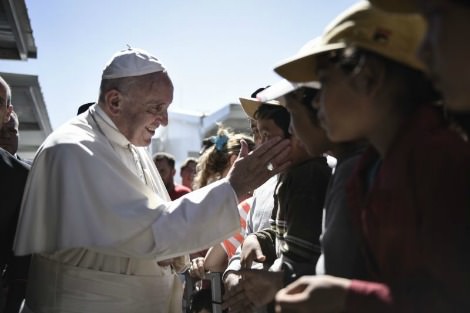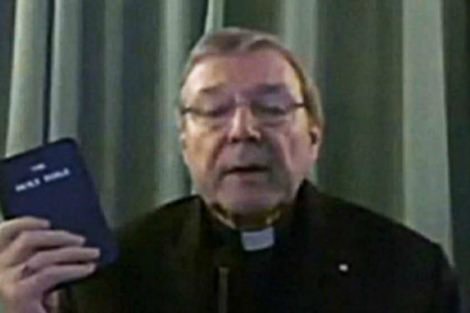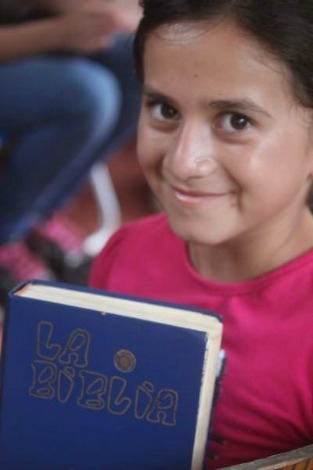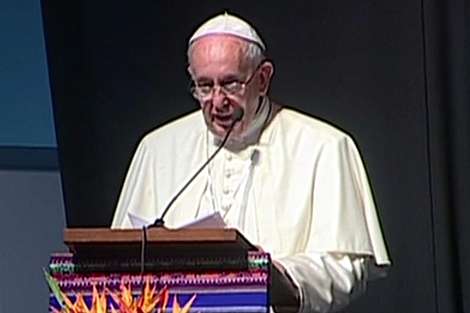Keywords: Christian Brothers
-

RELIGION
- Andrew Hamilton
- 19 April 2016
15 Comments
Lesbos is famous for crossing boundaries. It was the home of the poet Sappho and the tender, delicate lyrics dedicated to the woman who was her lover. More recently it has been the home of refugees who have crossed from the murderous conflict in Asia. Pope Francis is also as famous for crossing boundaries as we Australians are for patrolling them. He is reinventing the papacy as a one-man barbed-wire-cutting team. So it is not surprising he decided at short notice to cross into Lesbos.
READ MORE 
-

ARTS AND CULTURE
- Tim Kroenert
- 10 March 2016
6 Comments
When questioned about diversity in his films recently, Joel Coen replied: 'You don't sit down and say, "I'm going to write a story that involves four black people, three Jews, and a dog".' The answer is disingenuous at best. Filmmakers choose what stories to tell and how; with a few exceptions, the Coens tell stories about white men. Just as Quentin Tarantino ought to continue discussing the role violence and misogyny play in his films, the Coens should engage meaningfully with questions of diversity.
READ MORE 
-

RELIGION
- Frank Brennan
- 07 March 2016
'On his last two visits to Latin America, Pope Francis has focused on past and present relationships between indigenous peoples and their colonisers. This Jubilee Year of Mercy perhaps it could be a blessed moment for Aboriginal Australians and descendants of their colonisers to walk together through the Door of Mercy at the St Francis Xavier Cathedral, calling to mind the sins and endeavours of the past, the achievements and commitments of the present, and the hopes and aspirations of the future.' Fr Frank Brennan SJ, Lenten Talk, Norwood Parish, 3 March 2016
READ MORE
-

AUSTRALIA
- Moira Rayner
- 04 March 2016
40 Comments
A feeding frenzy is afoot over the review of Safe Schools program. At the same time poor old George Pell is under attack for failing to observe that his Ballarat colleagues were prolifically enabling Ridsdale and other pedophiles to sexually abuse little boys. The prurient desire to control the sexual interests of others on the one hand, and on the other the gross failures by institutions to protect vulnerable children in their care, are sadly linked to an unwillingness to face the truth about human sexuality.
READ MORE 
-

RELIGION
- Moira Rayner
- 14 December 2015
48 Comments
There is a culture of brotherhood in the upper echelons of the Church. There is also a natural urge to homosocial reproduction in its instrumentalities. If I have learned anything from my work with companies and organisations on cultural change, it is that these comfortable cultures need to be broken up, because they are readily corrupted. The best way to change a culture is to start giving women positions of real influence and respect. They are outsiders, and outsiders see what insiders cannot.
READ MORE 
-

RELIGION
- Frank Brennan
- 09 December 2015
2 Comments
'I joined the Jesuits in 1975 just as the previous 32nd General Congregation (GC32) was concluding. Pedro Arrupe was at the height of his powers. That Congregation asked the question: 'What is it to be a companion of Jesus today?' and answered unequivocally, 'It is to engage, under the standard of the Cross, in the crucial struggle of our time: the struggle for faith and that struggle for justice which it includes.' I have always regarded myself as a GC32 Jesuit. Many of those who gathered for GC33 thought that the GC32 mission was a little too one-dimensional. I suspect Bergoglio was one of those.' Frank Brennan on the eve of the Catholic Church's Jubilee Year of Mercy.
READ MORE
-

RELIGION
- Frank Brennan
- 27 November 2015
2 Comments
'The crisis of child sexual abuse in our societies has required that our institutional procedures be more transparent and that we learn from the ways of the world in exercising power openly and justly. This means we have to restructure some of our church arrangements so that power is exercised accountably and transparently. All of us who have positions of influence and power in institutional churches need to be attentive to the voices of those who have suffered within our institutions.' 'Discerning the place for the prophetic voice and pragmatic cooperation of the churches in the great moral questions of the age', address to the Association of Practical Theology in Oceania conference, 26 November 2015.
READ MORE
-

RELIGION
- Beth Doherty
- 29 October 2015
28 Comments
We can assume that despite the recent Synod's focus on families, most of the voters have never had any involvement in raising families, and certainly not of experiencing pregnancy and childbirth. None have directly dealt with an abusive spouse, struggled to regulate family size, questioned whether to stay in an unhappy marriage, or dealt with a child identifying as gay, lesbian or transgender. Last year, I spent time working in a parish in Paraguay, where, unlike the church more broadly, women run the show.
READ MORE 
-

AUSTRALIA
- Frank Brennan
- 23 October 2015
4 Comments
Francis knows there are all sorts of issues inside and outside the Church where for too long people with power have tried to keep the lid on, in the hope that the problems and complexities will go away, often by parodying those who see the problems or complexities as small 'l' liberals or cafeteria Catholics. He delights in being joyful and troubled while contemplating big problems, calling people of good will to the table of deliberation reminding them of the kernel of the Christian gospels. He has the faith and hope needed to lift the lid without fear and without knowing the answers prior to the dialogue occurring.
READ MORE
-

AUSTRALIA
- Andrew Hamilton
- 20 July 2015
14 Comments
As high level negotiators left the air foetid in Europe and Australia, South America was scented rather more freshly, with Pope Francis ahead in the stakes of providing hope for humanity. He delivered a fiery denunciation of modern capitalism, declaring modern capitalism's 'unfettered pursuit of money' the 'dung of the devil' and accusing world leaders of 'cowardice' for refusing to defend the earth from exploitation.
READ MORE 
-

- Frank Brennan
- 08 July 2015
3 Comments
I suspect Pope Francis had some of our Jesuit alumni in mind when he wrote in his encyclical Laudato Si: 'A politics concerned with immediate results, supported by consumerist sectors of the population, is driven to produce short-term growth... True statecraft is manifest when, in difficult times, we uphold high principles and think of the long-term common good. Political powers do not find it easy to assume this duty'.
READ MORE
-

- Sean McManus
- 25 June 2015
4 Comments
As much as any other religious figure in Australia, Frank Brennan has maintained a religious perspective while engaging in issues of ethics and justice in contemporary Australia. His book Amplifying that Still Small Voice emphasises the importance of the 'religious sense that the human person is created in the image and likeness of God', while speaking in the language and terms that are understandable to the public square.
READ MORE